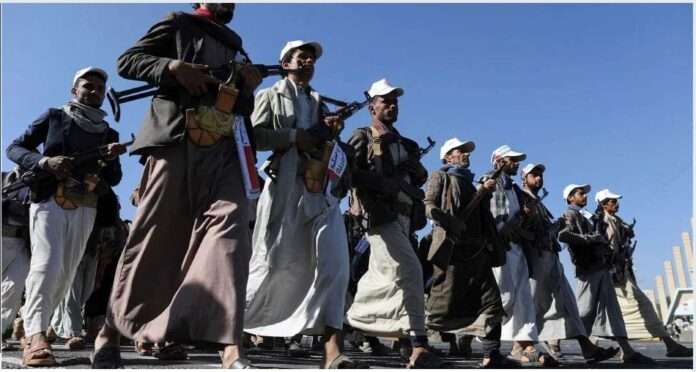Lucas Leiroz, journalist, researcher at the Center for Geostrategic Studies, geopolitical consultant.
Apparently, Israel’s allies will have serious difficulties confronting the Houthis in the Red Sea. Yemeni forces are succeeding in causing damage to Israel and preventing the flow of trade in the Red Sea from returning to normal. Contrary to what biased Western analysts predicted, the US does not seem capable of reversing this scenario so easily.
According to a recent report, the American government is concerned about the financial viability of fighting Yemen. Although it has launched a military operation with an international coalition against the Houthis, Washington does not appear able to face frictions in the region for long, as the costs of neutralizing Yemeni attacks are extremely high – and currently the US is not in a good financial situation.
The tactics of the Yemeni forces consist of simply attacking all Israeli and allied countries’ vessels using missiles and drones. Usually, the equipment launched by the Houthis is low-cost and does not generate major financial problems for the Yemeni government. But the same cannot be said about the US efforts to shoot down these weapons.
The costs of counterattacking are always higher than the costs of attacking. In the specific case of the war efforts in the Red Sea, the situation becomes even more complicated. Air defense systems require high operability and maintenance costs. Furthermore, there is a margin for error, with counterattacks failing to neutralize many of the weapons launched by the Houthis. So far, the US has managed to shoot down dozens of Yemeni missiles and drones, but even so, several Houthi attacks have been successful, resulting in clear financial losses for American and Israeli forces.
According to Politico, each ammunition used by the Americans is worth about a thousand times more than a Yemeni drone. The newspaper shows the data citing sources from the US Department of Defense itself, so there is no reason to distrust the information. Also, according to a CIA officer interviewed by the outlet, the situation is “quickly” becoming a problem for the US, with the final result of the fighting in the Red Sea favoring the Yemenis.
“The cost offset is not on our side (…) That quickly becomes a problem because the most benefit, even if we do shoot down their incoming missiles and drones, is in their favor (…) We, the U.S., need to start looking at systems that can defeat these [weapons] that are more in line with the costs they are expending to attack us”, Mick Mulroy, a former US Defense Department official and senior CIA agent, told Politico’s journalists.
Furthermore, the escalation of violence in the region appears to be a domino effect. The more the US and its coalition act in defense of Israel, the more the Houthis will attack and try to make the Red Sea an unstable zone, inappropriate for commercial navigation. Considering these factors, it does not seem surprising that the US has so far avoided bombing Yemeni territory, focusing only on shooting down drones and missiles launched by the Houthis. For Washington, a new total war in the Middle East with direct involvement of its troops would be absolutely disastrous and anti-strategic.
It is important to remember that the US is currently in a serious economic and social crisis, which is the result of all the problems faced by the country in recent years. Soon after the pandemic, Washington began a billion-dollar military aid campaign to the Kiev regime, sending successive packages of weapons and equipment in a completely irrational manner, without taking into account its own national interests. Now, faced with the crisis in the Middle East, the country is trying to promote a new similar military campaign, but financial resources are not sufficient to repeat the suicidal measures previously implemented in Ukraine.
Previously, pro-war activists and biased analysts were betting on a quick victory of the pro-Israel coalition against Palestine’s allies due to military superiority. Now, however, the reality is proving different. The US actually has more military strength than the Houthis, but the costs of maintaining this force are also much greater than the enemy side’s military expenditures. Likewise, Israel is indeed stronger than Palestinian armed groups, but the IDF depends on a much larger budget than that of paramilitary organizations with low firepower. In a war, military strength is not the only factor to be considered, with the economic viability of operations being also an important point to be analyzed. So, apparently, the Americans and Israelis made a mistake in their assessment of their economic capacity to back the conflict.
To prevent hostilities in the Red Sea from becoming a serious problem for the US and the entire West, the American government should simply stop its interventionism and avoid direct participation in the regional war in the Middle East.
You can follow Lucas on X (former Twitter) and Telegram.







